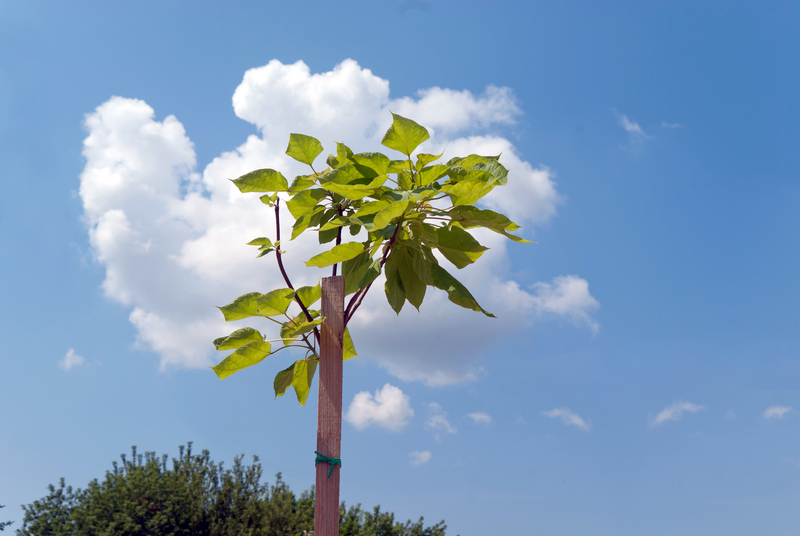Understanding Slow-Release Fertilizer Technology
Posted on 22/11/2024
In the realm of modern agriculture and gardening, the management of plant nutrition has taken a significant leap forward with the advent of slow-release fertilizers. Unlike their conventional counterparts, these innovative fertilizers are designed to release nutrients gradually over time, ensuring a steady supply of essential elements to plants. This article delves into the intricate technology behind slow-release fertilizers, their benefits, and some practical tips for their effective use.
What are Slow-Release Fertilizers?
Slow-release fertilizers are specialized fertilizers that provide a controlled release of nutrients to plants over an extended period. This technology is engineered to match the nutrient uptake rate of plants, thereby minimizing waste and enhancing efficiency. They typically come in granulated, pelleted, or encapsulated forms, and are designed to decompose slowly through biological, chemical, or physical processes.

How Slow-Release Fertilizer Technology Works
The technology behind slow-release fertilizers involves various mechanisms that control the nutrient release rate. Some common methods include:
1. Coating Technology: Nutrient granules are coated with materials like sulfur, resin, or polymer. These coatings dissolve gradually, allowing nutrients to be released in a controlled manner.
2. Chemical Reactions: Nutrients are integrated into compounds that break down slowly based on soil moisture and microbial activities.
3. Liquid Formulations: These formulations are converted to usable forms through soil microorganisms, releasing nutrients progressively.
Benefits of Slow-Release Fertilizers
Slow-release fertilizers bring forth myriad advantages for both plants and the environment:
1. Reduced Nutrient Leaching: The gradual nutrient release minimizes the risk of nutrients washing away with irrigation or rainfall, thereby protecting water bodies from contamination.
2. Enhanced Efficiency: Plants receive nutrients continuously, promoting steady growth and reducing the need for frequent reapplication.
3. Environmental Impact: These fertilizers contribute to sustainable farming practices by reducing the ecological footprint and conserving natural resources.
4. Cost-Effectiveness: Longer intervals between applications can result in lower labor and material costs over time.
5. Improved Plant Health: Consistent nutrient availability supports robust root development, improved flowering, and higher yields.
Pros and Cons of Slow-Release Fertilizers
Understanding both the advantages and limitations of slow-release fertilizers can help you make an informed decision for your gardening or farming practices.
Pros:
- Reduced environmental impact
- Lower risk of nutrient runoff
- Fewer applications needed
- Steady nutrient availability
- Enhanced plant growth and health
Cons:
- Higher initial cost
- Delayed nutrient availability in high-demand situations
- Specific formulations required for different plant types
Tips for Using Slow-Release Fertilizers
Maximizing the benefits of slow-release fertilizers requires thoughtful application and maintenance. Here are some practical tips:
1. Choose the Right Product: Select a slow-release fertilizer that matches the specific nutritional needs of your plants.
2. Correct Timing: Apply during the growing season to match the nutrient uptake patterns of your plants.
3. Proper Placement: Ensure the fertilizer is evenly distributed and placed near the root zone for optimal absorption.
4. Soil Testing: Conduct regular soil tests to monitor nutrient levels and adjust fertilizer applications accordingly.
5. Watering Practices: Maintain appropriate watering schedules to support the controlled release of nutrients.

Takeaways
- Slow-release fertilizers offer a sustainable and efficient solution for nutrient management in agriculture and gardening.
- The advanced technology behind these fertilizers ensures a consistent nutrient supply, fostering healthier plant growth and reducing environmental impact.
- Proper selection, application, and maintenance are crucial for maximizing the benefits of slow-release fertilizers.
Conclusion
Slow-release fertilizer technology represents a significant advancement in plant nutrition management, aligning with both ecological and economic goals. By understanding the mechanisms and benefits of these fertilizers, gardeners and farmers can make informed decisions that promote plant health and environmental sustainability. While initially more expensive, the long-term advantages in efficiency, reduced environmental impact, and improved plant growth make slow-release fertilizers a valuable investment for any agricultural practice.
Incorporating these products into your gardening or farming routine, backed by regular soil tests and proper application techniques, can lead to flourishing plants and a healthier ecosystem.
Latest Posts
Essential Tools for Passionate Gardeners
Top 9 Gardening Tips for Newbies
Top Edible Wild UK Plants and Flowers



